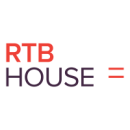In the ever-changing tech landscape, new advancements like generative AI and bioengineering continually challenge perceptions. While this rapid evolution is exciting, it can overwhelm users and leave companies feeling behind. These days, clinging to old methods is no longer viable.
Harvard Business Review’s findings since 1980 show a doubling in the volatility of business operating margins, alongside a widening gap between high and low-margin companies. The bottom line? To stay ahead, companies must adapt to shifting conditions and embrace change, and fortunately, there are companies like Arcadia.io, Inspira Financial, Procare Solutions, RTB House and 3Play Media leading the way.
Recently, Built In sat down with sales leaders from each to learn their tactics for adapting to stay ahead of the curve.
Arcadia is a health data platform built to improve lives.
Remaining nimble and responsive is critical for a successful sales team. How does your team stay on top of trends or market conditions that may impact your customers or your sales process?
We are constantly surveying the market, industry news and publications, and our clients to adapt our strategies as needed.
HOW ARCADIA STAYS RESPONSIVE
- Direct Market Feedback: “Our sales professionals gather real-time insights from their interactions with potential customers and industry group participation.”
- Market Monitoring and Competitive Intelligence: “Arcadia’s marketing team has made several investments to monitor the market and gather market intelligence proactively. The marketing team collates news and intelligence into weekly newsletters, which helps the company keep its finger on the market pulse.”
- Product Leadership: “Arcadia’s product leadership team remains in constant dialogue with its growth teams, using customer feedback and market intelligence to refine and adapt its offerings.”
These strategies help us identify when shifts in the market necessitate a change in our approach, ensuring we stay competitive and meet our customers’ needs effectively.
What are some ways your team has adapted its sales strategies recently in light of market shifts?
In today’s shifting marketplace, organizations are becoming more cautious with their budgets and hesitant to take significant risks. Recognizing this, we strive to align closely with our buyers’ needs, employing strategies like phased implementation or proof of concepts to demonstrate tangible results upfront. This approach allows us to showcase how our solutions directly address our prospects’ challenges and contribute to the success of their program goals.
We’ve also enhanced our sales strategy with tools like an ROI calculator for in-depth discussions on potential returns. In this market, buyers want to ensure they get the value and return they expect from a large IT expense. Moreover, sharing success stories and testimonials from our existing clients has played an important role. People don’t even eat at restaurants without consulting reviews, so offering prospective clients a glimpse into the real-world effectiveness of our solutions helps with their buying decisions. A shifting market and decision-making process requires organizations to build trust and provide clear, tangible outcomes, ensuring a confident decision to partner with us.
What impact are these new strategies having on the success of your reps? Are there any notable wins you’re proud of?
These sales strategies have boosted our success, particularly through supporting enhanced buyer confidence and more efficient deal closures. We’ve seen slightly reduced time to close while maintaining or increasing deal sizes. The ROI calculator has proven invaluable in, not only demonstrating ROI but also supporting more in-depth discussions and allowing the introduction of Arcadia domain experts into deals, which has in turn enriched related sales engagements.
We recently had a somewhat hesitant prospect who, persuaded by our clear ROI and proof of concept, committed to a larger deal with our organization. These new strategies are not just accelerating sales processes but also solidifying client trust and satisfaction in our solutions.
Inspira Financial provides health, wealth, retirement and benefits solutions that strengthen and simplify the health and wealth journey.
Remaining nimble and responsive is critical for a successful sales team. How does your team stay on top of trends or market conditions that may impact your customers or your sales process?
Through market surveys and ongoing industry research, we stay on top of industry trends and the things that are happening that are impacting our clients and potential new relationships.
For example, we know there is a significant amount of the U.S. population at risk of not having enough retirement income to cover out-of-pocket healthcare costs throughout their retirement. Medicare doesn’t pay for everything, and the cost of health care will likely be higher than most people have prepared for.
We are also witnessing a shift in companies having not only a genuine interest and responsibility in their employees’ mental and physical well-being but their financial well-being, as well.
Our role at Inspira assists those employers in taking a more active role in helping their employees plan for health care costs into their retirement. This doesn’t necessitate shifting our strategy, but understanding exactly what’s taking place and what our clients need. We know there’s a mutually beneficial opportunity for employers to play a role in educating their employees about their benefits.
What are some ways your team has adapted its sales strategies recently in light of market shifts?
Many Americans have recently faced a challenging economic environment that has depleted their savings. Employees are stressed about their financial future, and one of our recent reports indicates that 80 percent of employers agreed that employees’ financial issues impede their job performance.
“Eighty percent of employers agreed that employees’ financial issues impede their job performance.”
With the depth and experience we have here at Inspira, and our developing thought leadership like the above-mentioned whitepaper report, we can share helpful information and steps for employers that seek to improve employee well-being and increase productivity. Benefits solutions can achieve those things, but they must be easy to understand and effortless to implement. As the market shifts and evolves, we enjoy working with our partners to communicate what we know about the industry and the marketplace and offer them solutions that can serve a critical role in addressing the short- and long-term financial wellness of their employees.
What impact are these new strategies having on the success of your reps? Are there any notable wins you're proud of?
One example we can cite is our communication and sharing of information about the tax advantages of a health savings account. We play a key role in helping employees remain engaged and helping them understand its value.
Watching efforts like this flourish makes my job easy and fulfilling. Our success is achieved by helping our plan sponsor clients implement an integrated and easy health savings solution at a low cost. Our services also include designated account management, analyzing employees’ spending and savings behaviors, as well as educating them about options for investing funds in their HSA. An HSA can help them save for healthcare costs in the current year or in the future, and that’s something we love to see.
Procare is the largest and leading provider of childcare management and parent engagement software, integrated payment processing, technology and services.
Remaining nimble and responsive is critical for a successful sales team. How does your team stay on top of trends or market conditions that may impact your customers or your sales process?
There is a need for go-to-market functions to be quickly responsive to its market and its employees. To remain nimble, we should have a standard approach to incremental change. This means that when we need to change, we already have a process — and that process is determined by who is impacted the most.
Change can be big and require multiple touchpoints across multiple channels, or it can be small, and we gauge when it’s time based on anecdotal feedback from our customers, coupled with a noticeable change in a series of complimentary KPIs. Since we look at KPIs over time, we can see a change in the quality and quantity of our effort and effectiveness. Utilizing several KPIs in conjunction with feedback prevents us from accidentally reacting to a passing anomaly instead of a trend in the market or competitive landscape.
“Utilizing KPIs in conjunction with feedback prevents us from reacting to a passing anomaly instead of a competitive trend.”
What are some ways your team has adapted its sales strategies recently in light of market shifts?
Our sales team has to be nimble and regularly look at our rules of engagement to determine if we are responsive enough to the needs of our prospects and customers. We have changed the team to align with the customer journey several times, and we will continue to do so to ensure they receive the best possible experience.
Another example of how we’ve adapted our sales strategies is the evolution of how we have our prospects become customers. We have automated many of our internal processes while continuing to protect our customers’ data, streamlining the experience that customers have and allowing for increased specialization of our reps.
What impact are these new strategies having on the success of your reps? Are there any notable wins you're proud of?
Implementing a sales strategy that adapts to market shifts plays a pivotal role in empowering our sales team by enabling them to align closely with the needs of their customers throughout their buying journey. This approach not only enhances the team’s ability to respond effectively but also allows them to be innovative and agile, ensuring they are meeting targets and contributing to the development of lasting customer relationships.
RTB House is a global company specializing in advanced personalized retargeting solutions powered by deep learning.
Remaining nimble and responsive is critical for a successful sales team. How does your team stay on top of trends or market conditions that may impact your customers or your sales process?
Given the fickle nature of markets and customer needs and the consistent evolution of technology, my sales team is reliant on a wide variety of external and internal tools to stay on top of marketing trends.
It starts with people. At RTB House, we have a wide variety of industry experts across commercial and technical disciplines that help keep my team informed on market conditions, trends, innovations and potential headwinds within our industry. Moreover, cross-vertical knowledge sharing between internal teams is key to making ad-hoc adjustments as needed.
We also rely on our prospects and clients to help us understand the KPIs of their business, where they’re seeing gaps within their existing partnerships and their plans for closing those gaps. This information is key for how we address individual needs and make adjustments to our sales and business strategies.
Our sales team is reliant on external business analytics platforms, market publications and training to help keep our understanding of trends and marketing conditions sharp.
What are some ways your team has adapted its sales strategies recently in light of market shifts?
Change is consistent, and like all successful sales teams, adjustments and adaptation is key to success. Specific to market shifts, adaptions have come in two forms.
RTB HOUSE’S ADAPTATIONS
RTB has built new specialized teams that are focused on particular segments of business, allowing it to create complementary KPIs. Aligning KPIs with the areas where the company aims to drive growth is a foundational element in modifying its sales strategy to achieve desired business outcomes.
What impact are these new strategies having on the success of your reps? Are there any notable wins you're proud of?
The new sales strategies have had a direct and positive impact on the success of our sales team. Our sales team understands their objectives, how they are being measured and what success means in both the short and long term.
As a result, we are seeing notable wins with new business that are expected to drive much greater sales conversion velocity in the coming year.
3Play Media provides closed captioning, transcription, translation and audio description to customers across higher education, media and entertainment, enterprise and government.
Remaining nimble and responsive is critical for a successful sales team. How does your team stay on top of trends or market conditions that may impact your customers or your sales process?
We recently reorganized our sales teams to align with our primary verticals, which was a pivotal shift, fostering expertise and collaboration within each pod as teams navigated industry trends and crafted targeted campaigns. To bolster these pods, we integrated support roles — including marketing, enablement and product teams — directly into the groups.
This supported daily operations and influenced our product roadmap with insights gleaned directly from the field and enhanced our agility in responding to market trends and customizing our approach. As we continue to refine our go-to-market strategies within each pod, our approach evolves through constant learning and adaptation, rather than retrospective responses to the market, ensuring that our strategies remain in lockstep with the dynamic market landscape. This also underscores our commitment to continuous improvement and excellence in customer engagement.
“As we continue to refine our go-to-market strategies, our approach evolves through learning and adaptation, ensuring that our strategies remain in lockstep with the dynamic market landscape.”
What are some ways your team has adapted its sales strategies recently in light of market shifts?
In the second half of last year, we pivoted within one of our pods to concentrate on a previously undervalued use case. This shift was one of the first opportunities where we committed to a targeted use case, and that allowed us to identify and seize an opportunity within a critical vertical, addressing a tangible customer need with our existing product suite.
We partnered with a niche technology provider in this space and developed a workflow integration that plugged into our customers’ processes. This move came at a time when our competitors were reassessing their commitments to this sector, influenced by broader economic conditions, which enabled rapid growth for our pod without necessitating significant new investments, validated our strategic bet and encouraged further focused investments in this domain.
Moving forward, our objective is to replicate this model across all pods, identifying and capitalizing on targeted use cases that offer growth and meet customer needs. This approach is pivotal to our growth strategy so that we may continue to deliver value to our customers while optimizing our growth path.
What impact are these new strategies having on the success of your reps? Are there any notable wins you're proud of?
Adopting the pod structure has enhanced our capacity to offer specific and expedited support to our teams. We create dedicated Slack channels for key customers and opportunities, enabling direct collaboration between sales, marketing, product and operations teams, tailored to address specific challenges or opportunities faced by prospects or clients. This simple shift ensures team members have the immediate access needed to solve challenges and crowd source an efficient solution.
This new model has also opened up new professional growth and advancement opportunities. Transitioning from an informal alignment with verticals last year to a more structured approach in 2024, we have fortified our teams with individuals boasting specialized industry knowledge. This enhancement not only strengthens our customer engagement capabilities but also positions us as industry thought leaders. In parallel, we’ve provided pathways for career progression, promoting team members to leadership roles and expanding responsibilities to further their professional development and contribute to our company’s strategic objectives.














